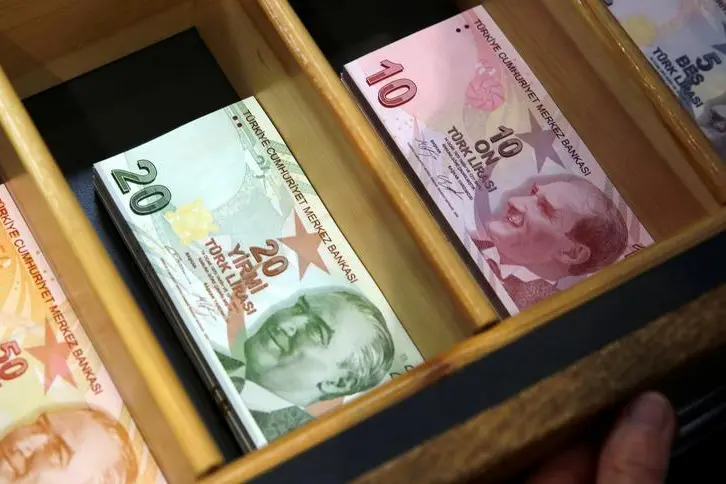PHOTO
Turkey's lira was flat on Thursday after a historic slide to record lows this week that was triggered by President Tayyip Erdogan's defence of interest rate cuts, despite widespread criticism of his policy direction.
Central bankers, regulators and lenders were set to meet later in the day to discuss the market turmoil. Separately, officials told Reuters that Erdogan has ignored appeals, even from within his government, to reverse policy. urn:newsml:reuters.com:*:nL8N2SF2I0
The lira was worth 12.09 versus the dollar by 1044 GMT, after having firmed as much as 2% to 11.85 in early trade. It hit an all-time weakest level of 13.45 on Tuesday.
Before the rebound, the currency hit record lows against the U.S. currency in 11 consecutive sessions. It has lost as much as 45% of its value this year, with around half of those losses occurring since the start of last week.
Fixed income markets looked more cautious with the cost of insuring exposure to the country's sovereign debt through credit default swaps nudging 1 basis point higher from Wednesday's close to 478 bps, while longer-dated dollar denominated sovereign dollar bonds edged lower.
Officials from Turkey's central cank, its BDDK banking watchdog and the banking association were to meet on Thursday to discuss recent developments in the economy, a banking source told Reuters, after the lira slide.
The central bank was set to release at 1100 GMT the minutes of last week's monetary policy committee meeting, where it lowered its policy interest rate by 100 basis points, bringing cuts since September to 400 points.
Many Turks, already grappling with inflation of around 20%, fear price rises will accelerate. Opposition politicians have accused Erdogan of dragging the country towards disaster.
Erdogan has defended central bank policy and vowed to win his "economic war of independence", having pressured the central bank to move to an aggressive easing cycle with the goal of boosting exports, investment and jobs.
But many economists have described the rate cuts as reckless and opposition politicians called for immediate elections. Turks told Reuters the dizzying currency collapse was upending their household budgets and plans for the future.
(Writing by Ezgi Erkoyun and Daren Butler; Editing by Kim Coghill and Jonathan Spicer) ((ezgi.erkoyun@thomsonreuters.com; +90-212-350 7051; Reuters Messaging: ezgi.erkoyun.thomsonreuters.com@reuters.net;))





















